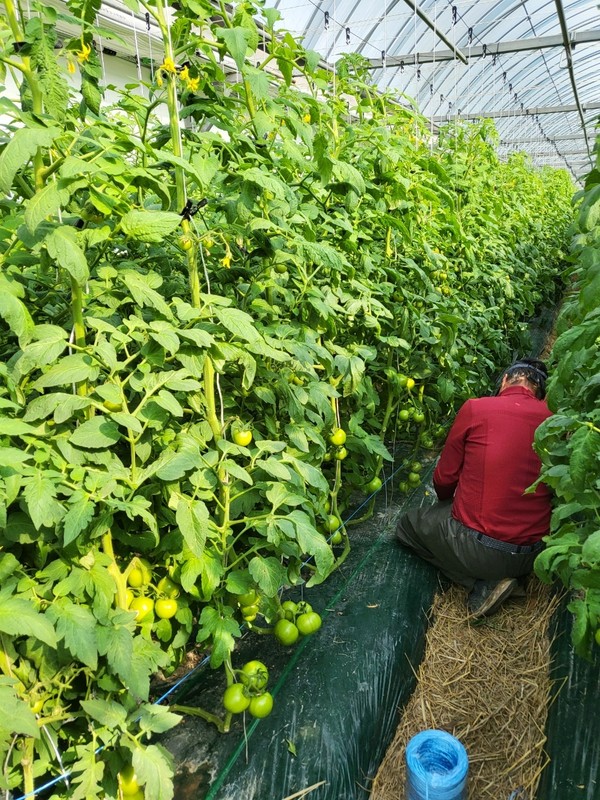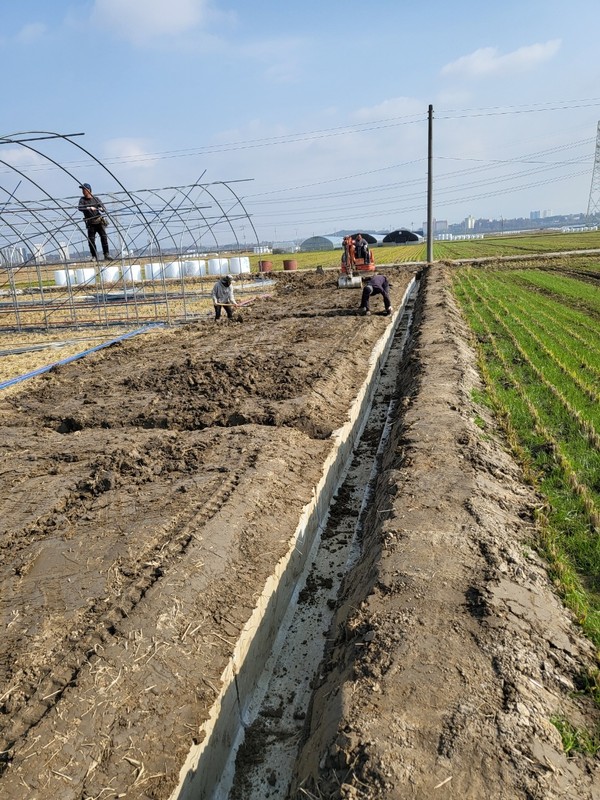Stresses Paul Kwan-soo Hwang, member of Fine Solbitgil Agricultural Association
“My goal is to discover many companies and many people with a mind that combines welfare and agriculture like me, and put all of my energy into cloning, and contribute to making Korea and the world a better place to live,” said CEO Paul KS Hwang of Fine Enterprise.
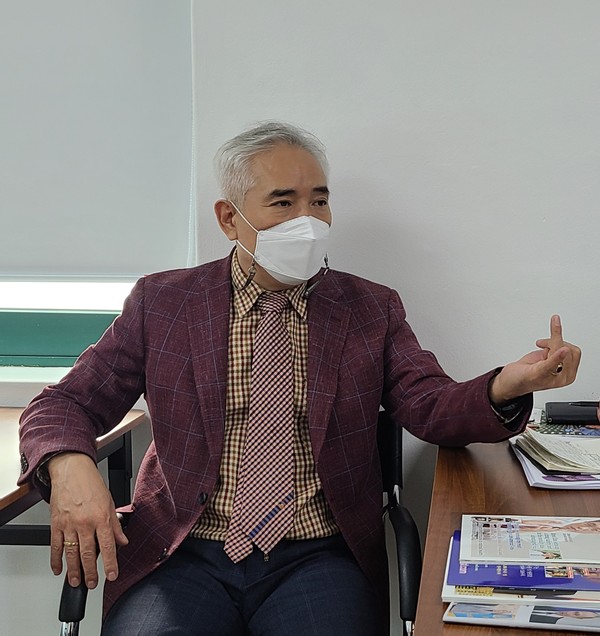
In an interview with The Korea Post media, publisher of 3 English and 2 Korean-language news publications since 1985, CEO Paul Hwang said, “Due to industries developed for human convenience, animals and plants have been sick with environmental pollution, harmful bacteria, and viruses (such as swine flu, SARS, MERS, COVID-19). In the end, humans realized a world struggling with diseases, and after long research and planning. And I had a firm belief that small practices with organic agriculture could save the soil and further change the world healthy.”
The followings are main contents of the Korea Post interview with CEO Paul Kwan-soo Hwang of Fine Enterprise.
Question: Would you introduce the CEO of Fine Enterprise?
Answer: My name is Paul Kwan-soo Hwang. I am a humanities and social welfare expert who completed my studies in English literature at the Graduate School of Hanyang University in Korea and in social works study (Gerontology) at the Graduate School of the University of South Carolina, USA.
After gaining a lot of experience in large corporations and social welfare and social contribution departments, I was fascinated by the optimal agricultural environment while on a business trip to Bali, Indonesia.
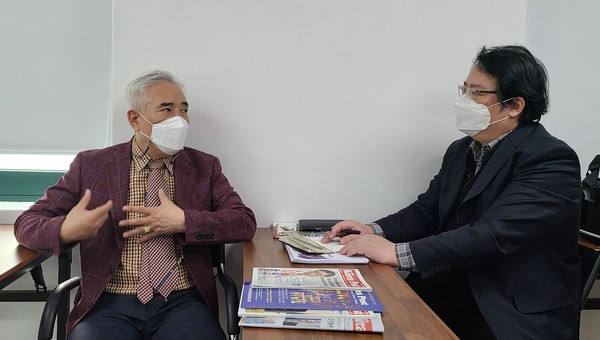
Bali, Indonesia, is a world-class resort destination, with a small temperature variation throughout the year and can be grown year-round, so profitability and safety can be secured. Since the average daily influx of foreign tourists is more than 1 million, it also has the advantage of promoting the consumption of high-quality agricultural products. I have a dream in the second act of my life.
I will learn agriculture properly and become a professional agricultural manager.
In order to achieve my dream, I entered Korea National Open University(KNOU) as a freshman to study agriculture hard. I don't think the modifier that life starts from 60 is wrong.
Q: Please tell us about Fine SolBitgil Agricultural Cooperative Corporation.
A: We are cultivating a tomato and strawberry farm located in Samrye-myeon, Wanju-gun, Jeollabuk-do in Korea and a Kintamani Catur Farm in Bali, Indonesia, and creating an affiliated 'Plant Breeding Research Institute'.
An organic farm was created in Bali Catur, Indonesia, combining Bali's nature, humanities environment, and Korean strawberry seeds and various varieties around the world with expert techniques. Volcanic organic soil, weather, organic cultivation, and contract distribution are guaranteed to secure stable sales markets and guarantee profits.
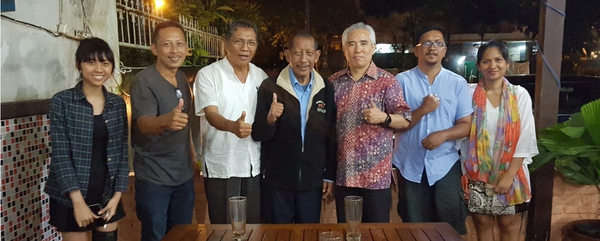
The plant breeding research institute that is being established aims to strengthen stable supply competitiveness and establish a sustainable profit system through the development of new strawberry breeding and tissue culture of cultivated plants.
The most important reason for preference for soil cultivation (a method of growing directly on the land) rather than hydroponics (a growing environment that produces a lot of production but requires chemical fertilizers) is that Fine Solbitgil Agricultural Cooperative Corporation, which puts a lot of attention and effort into eco-friendliness, has a good mission to secure healthy food for the future.
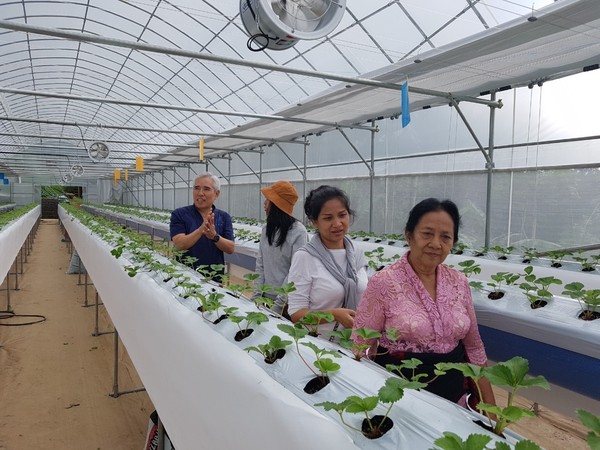
Q: What is hydroponics and soil cultivation? Please explain these in detail.
A: Strawberry hydroponics is a method of growing plants in water and culture medium without growing them on land. Hydroponics has a lot of production, so it is characterized by a yield that is about 1.5 to 2 times higher than that of soil cultivation.
There is also the advantage of being able to experience a clean farm because it is grown on a facility without using soil.
In the early days of hydroponics, plant roots were immersed in a solution of water and fertilizer to study plant nutrition.
Due to the difficulty of supporting the plant to grow normally upwards or supplying air to the solution, it was replaced by gravel cultivation, where the gravel supports the plant from tipping over in a water-filled nursery.
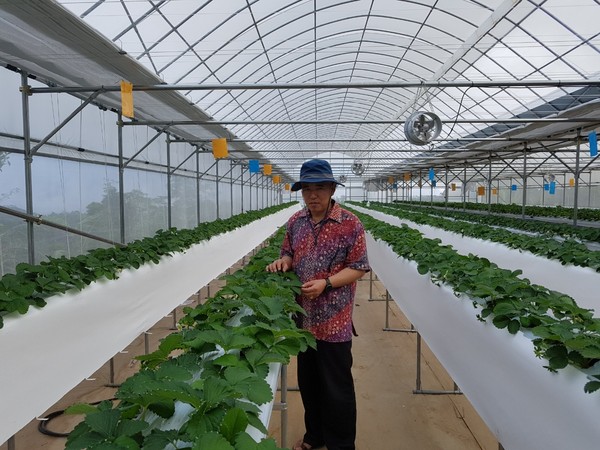
In hydroponics, the fertilizer solution is regularly pumped out, but the solution is composed of chemicals with several grades of fertilizer components, so there is a disadvantage that organic farming cannot be done.
Therefore, soil cultivation is a method of growing directly on the land, so it is possible to use organic farming methods without pesticides, so it is a method that can contribute to the expansion of high-quality and safe food.
We have grown horticultural crops in various cultivation methods, but the reason for insisting on soil cultivation is clear.
In Korea, organic farming is permitted, and in Bali, Indonesia, the optimum temperature (15° to 23°) for growing strawberries and various fruit trees and clean spring water flowing down from the mountain are formed on the top of a hill or in a hilly area rather than a flat area. It is grown in fertile soil rather than hydroponics. By doing so, we can implement the philosophy of Fine International to secure healthy and safe food for future generations.
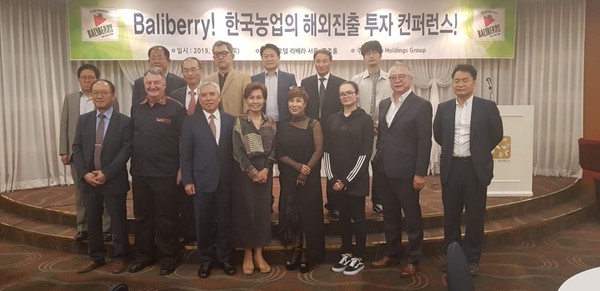
Q: Please describe the Welfare Organic Agriculture Landscape Urbanism.
A: We all become seniors. Let's think about one thing together. There is also the aesthetics of aging, but on the other hand, it is more likely to fight various diseases. I have a dream. I and many others have the right to live in a good environment and to eat healthy and safe food.
It is a life of breeding and developing various crops in the best place, eating fresh organic crops for 12 months a year, and creating a resort-style residential complex (in cooperation with a large company) to create an old age with ecology, rest, and healing.”
Among the fields of real estate, there is urban ecology (Landscape Urbanism).
In other words, it is to create a city where people can live beautiful and healthy by combining eco-friendly landscaping and ecology.
The hard work of the employees of Fine International who established welfare agriculture with such a complex and scientific approach is worthwhile.
The resort-style residence culture with healthy food farms and food breeding development labs is expected to be very popular with many people who want to pursue an eco-friendly life.
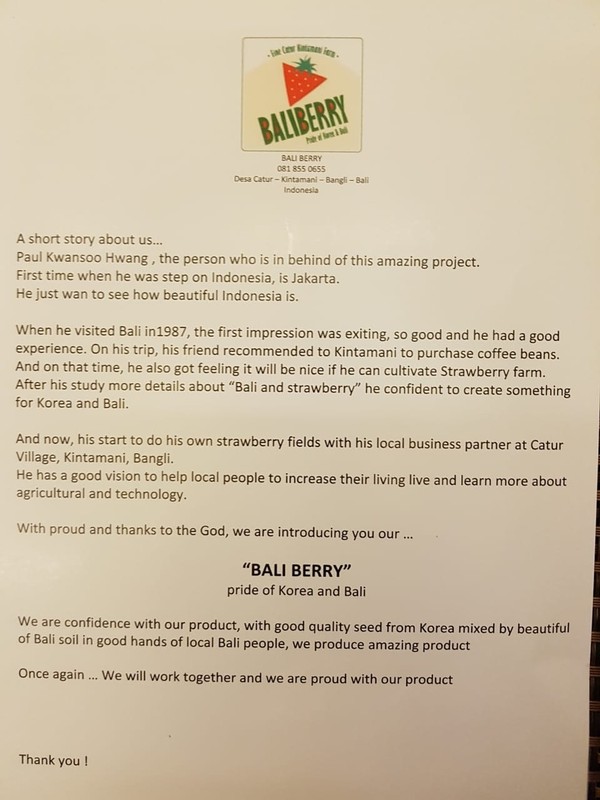
Q: Why did you choose Bali, Indonesia?
A: Indonesia is a Dutch territory and has been a colony for 400 years.
Bali, Indonesia, which has absorbed various breeding and farming methods in the field of floriculture and horticulture during agriculture, boasts an optimal location for growing organic horticultural crops.
With a huge human population of nearly 300 million, domestic consumption is also sufficient. It is an area where rice, the basis of food, is grown with a world natural heritage, rice fields, called the ‘Cheonsudap’ (A place where natural rainwater is farmed without facilities that artificially add water.)
I fell in love with the Bali region as it was like seeing life in Korea in the late 1960s.
Children respect their parents and are proud of their hometowns living like the Saemaul Movement. It consists of residents with strong pride who believe in “rebirth thought.”
There are many Hindus, so it was great to see residents living naturally without much greed, thinking that animals are a part of human life.
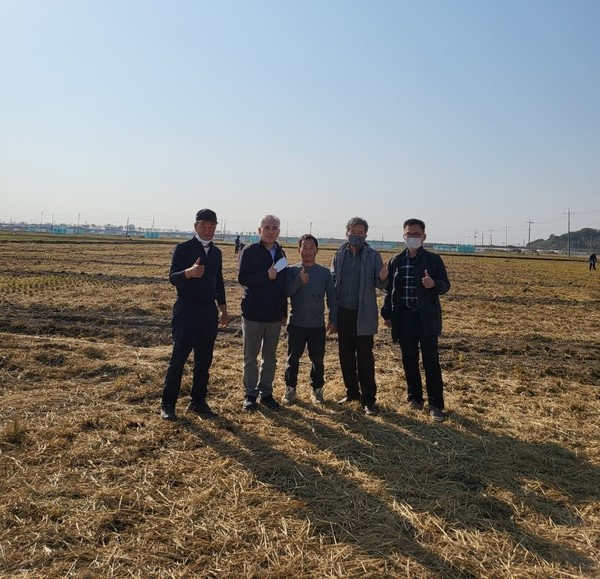
Q: How to secure food sovereignty? Please tell your opinion.
A: Korea’s greatest strength is the establishment of sovereignty over rice.
In the early 1990s, we had serious difficulties due to the Uruguay Round (UR) negotiation. But we overcame such difficulties with high quality despite the pressure to open the Korean rice market.
No matter how much rice from other countries comes in, if it is inferior to Korean rice in terms of taste and quality, it is naturally culled.
As the case where famous foreign hypermarkets voluntarily withdrew due to Korea's dense supermarket culture shows, food sovereignty is a very important national core value linked to future hegemony.
Through Korea-led southern policy and economic cooperation with V4 (Eastern European countries), measures should be taken to foster and support the "legislation of one agricultural match" that uses Korean agricultural technology to produce raw materials and raw foods in each country.
Looking at the hydrogen fluoride crisis in Japan in 2019 and the urea water crisis in China this year, I predict that one day there will be a situation comparable to war with food.
A resource war will certainly wreak havoc around the world. The only way to protect food sovereignty is to develop plant breeding and secure resources.
Q: What are your plans and goals for the future?
A: I got a lot of inspiration from Bali, Indonesia. The most envy of them is that the laughter of countless children resounds in the neighborhood.
After all, a lot of work is done by people, and I am very concerned about the rate of population decline in Korea.
In Bali, Indonesia, there is so much to learn from seeing large families living together and helping each other to build a family and society, even if they don't have much.
I have a suggestion for the government to increase the population and build a huge Republic of Korea. There is a plan to increase the population of Korea. Rather than shameful history, there is a history we must face.
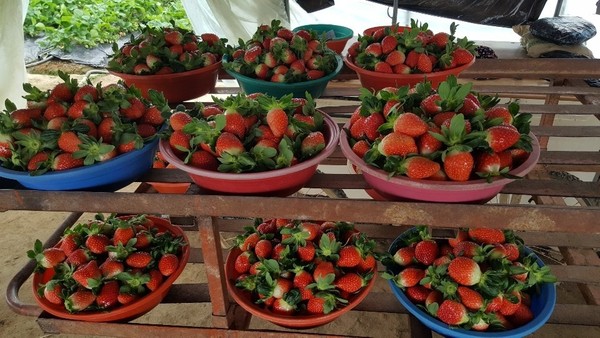
I think we need to pay attention and support to many children related to Korea beyond Asia, such as ‘Lai Dai Han, racially mixed children born to a South Korean father and a Vietnamese mother’ and ‘Kopino’ children of mixed Filipinos who are spread throughout Asia.
I saw the abandoned children still wasting their lives with antipathy and hatred for Korea.
To them we have to extend a warm hand. After all, they are our descendants.
We will do our best to realize a compound plan that can contribute to the Korean economy by first discovering and nurturing mixed-race Korean children spread around the world in institutions that they can learn skills such as Meister schools, polytechnics, and agricultural colleges in Korea.
Q: What is the distribution plan at the strawberry farm in Bali, Indonesia?
A: Distribution and exports throughout Indonesia are mainly sent to Singapore, Australia, Malaysia and Southeast Asia. Continuous production throughout the year is possible and competitive with other countries.
Since it is harvested in a 100% ripe state, it takes an advantage in quality. In Korea, 70% of colored fruits are harvested and exported.
When sent in a fully ripe state, the biggest advantage is the freshness and the best brix (sugar content) at the time of reaching the consumers.
In particular, exports to the Southeast Asian market do not need quarantine because they are verified locally due to ASEAN special tariffs.
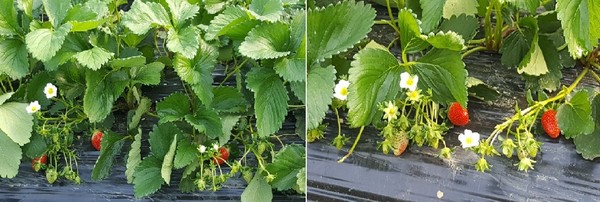
We plan to mass-produce high-quality, virus-free seedlings within a short period of time by collecting the growth points of healthy plants by operating a plant breeding tissue culture laboratory.
In the future, the quality of cultivated plants will be improved by developing various breeds such as strawberries, grapes, tomatoes, citrus, sweet potatoes, and other tropical plants.
In addition, with the philosophy of putting the environment first, we will develop and export varieties that are suitable for consumer preferences. We will also stick to organic cultivation and develop and export varieties that are suitable for each region (country), thereby establishing a stable source of income.
We will achieve the great Republic of Korea and K-agriculture by nurturing the most important talents.
Environment and ecology (environmental science) is the future of the earth.
